Vineyard Visit – Oekologischer Land- und Weinbau Kraemer – Part II
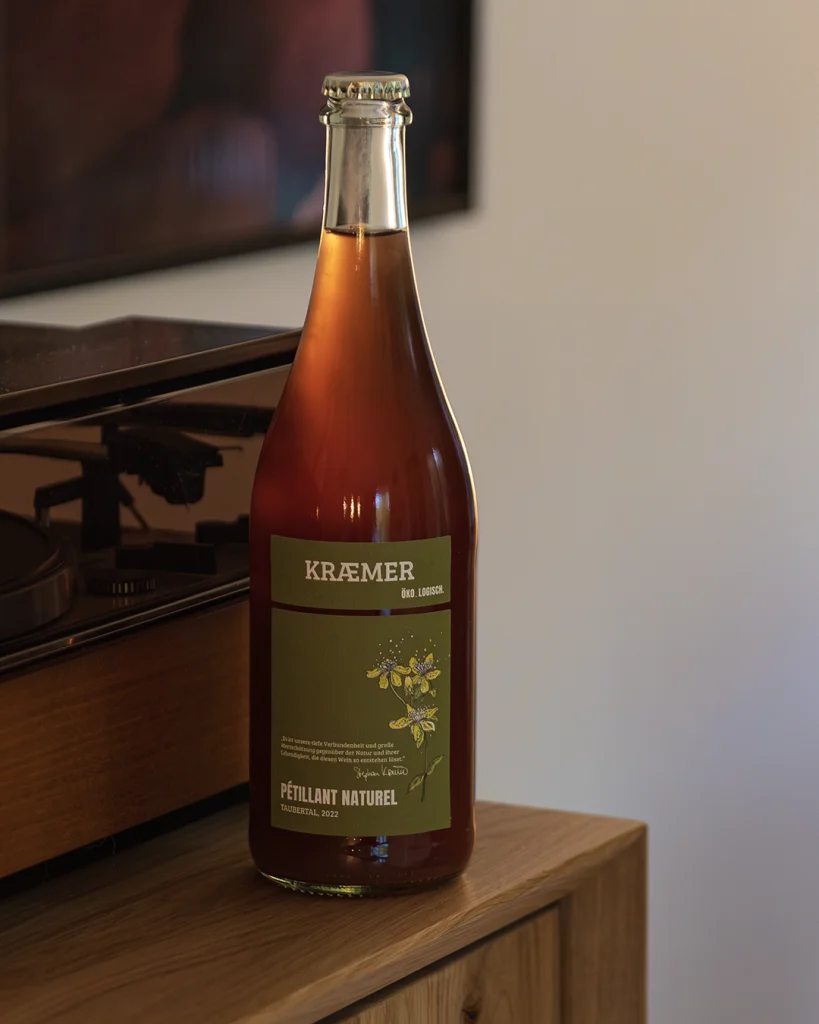
Before, during and after our dinner provided by Simone Kraemer at their vineyard restaurant, we did a tasting of Stephan’s wines. So, here is a short overview of what we tried.
We started with the Pet Nat made from 70 % Regent, 30 % Bacchus. Stephan uses a relatively low resulting preassure (Perlwein) due to regulations. As with all of Stephan’s wines the Pet Nat is unfiltered, unfined and Stephan just adds 10 mg / l – 15 mg / l sulphur. When it comes to Pet Nats, I am a bit cautious. Yet, we enjoyed the Kraemer Pet Nat with its medium Perlage and noticeable, but not overwhelming fruit notes, a lot. On top of that, I found a crisp acidity in combination with a light grip and traces of tannins. The flavours ranged between red fruit and green apples.
Silvaner N.V.
For his standard Silvaner, Stephan uses grapes grown in Roettingen and Tauberzell from partially old vines. The N.V. uses a mix of 80 % 2023 and 20 % 2022 vintage. The grapes are directly pressed, spontaneously fermented and aged in 80 % stainless steel as well as 20 % oak barrels. You get some fruit notes which are quickly accompanied by citrus and minerals. In the taste there is a noticeable grip with green fruits and citrus, especially lime. I already enjoyed this Silvaner very much and it overs a great value-for-money.
Weiss 2020
The Weiss 2020 is a cuvée of Mueller-Thurgau, Johanniter and Riesling. The grapes are vinified separately in large oak barrels. The resulting wine includes 25 % intercellular fermented grapes and spends two years on the yeast. The Weiss probably surprised me the most, it offers Stephan’s characteristic phenolic wine notes with a lot of overripe fruit flavours. The wine has a complex taste and a lot of depth.
Johanniter Reserve
The Johanniter Reserve again is a non vintage with parts of directly pressed and part mash-fermented grapes as well as a part of Maceration Carbonique. The wine also spends more than two years on the yeast. Stephan shows how PiWi-varities can work! The skin contact portions of this wine make it interesting. Again, you will find a lot of ‘grip’ combined with white grapefruits and slightly herbal notes.
Mueller-Thurgau Muschelkalk 2022
Next we tried three different Mueller-Thurgau wines, quite the underrated variety. Stephan produced the Muschelkalk 2022 in his usual fashion. Yet, the wine was quite different from what I expected: There was a certain glue-like characteristic. Apart from that, the wine showed a citric backbone, overripe as well as some exotic fruits. A bottle sample of the 2023 vintage tasted very different. The volatile flavours were gone and a typical Mueller aroma, especially the nutmeg, became noticeable. Yet, the 2023 still had a lot of ‘grip’ along with some phenols.
Mueller-Thurgau Silex Reserve 2020
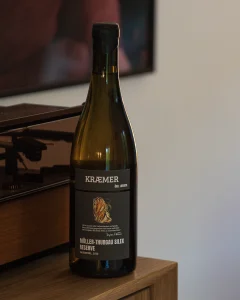
The Kraemer Mueller-Thurgau Silex Reserve starts similar to the 2022 Muschelkalk. The wine spends two additional years in small, used oak barrels. Stephan has already cleared the vines for this wine, so this is the last chance to taste it. First, you notice oak spices and a bit of volatile flavours. On top of that, there is the typical ‘Kraemer’ flavour of overripe fruits in combination with grape skins. When it comes to mouthfeel, the wine holds on to your palate and does not let go! The taste is finished by a very long aftertaste.
Alter Satz N.V.
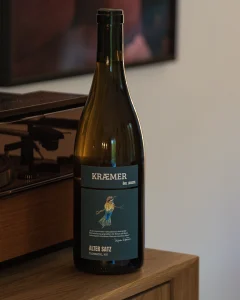
For the Alter Satz Stephan planted 12 different varities in a mixed-lot with Adelfraenkisch, Muskateller, Silvaner and Vogelfraenkisch. For this bottling, he blended two vintages. This was the wine I was looking forward the most and I was not disappointed. The wine showed ‘typical’ old varietal flavours I associate with green grape kernels. There was a touch of volatile flavours which were accompanied by green apples, citrus, nutmeg as well as fruit skins. Through its complex mix of varieties, stages of ripeness and the usual longevity of Stephan’s wines this one can age forever.
Riesling Silex Reserve 2020
Just I managed to procure Stephan’s last line of reserve wines, he bottles five new ones. For his Riesling Silex Reserve he uses the same wine making technique as with the Mueller-Thurgau Silex Reserve. In short, this probably is the most complex Riesling I have tried so far: You can taste overripe fruits noticeable phenols and fruit skin flavours as well as vanilla. Compared to the other wines, the Riesling Reserve probably shows the most minerals which tend toward a certain salinity.
Alte Reben Reserve 2018
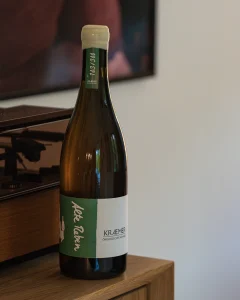
Last, but not least, Stephan gave us a blind sample of his Alte Reben Reserve 2018. The wine is based on his regular ‘Alte Reben’, but spent two more years in a French Burgundy barrique. I know that Stephan is quite proud of this wine and he should be. It was late and the bottle was freshly opened, so I could only get a glimpse of the wine’s full potential. Besides the typical skin contact flavours, I noticed red apples, Cidré notes, a touch of volatile flavours as well as some chalky, salinity.

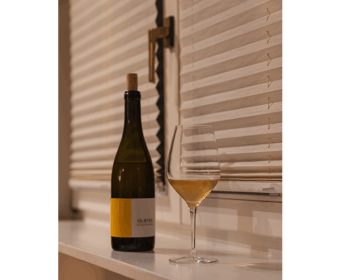
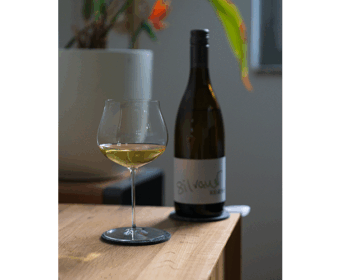

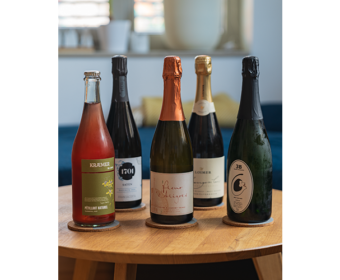
One thought on “Vineyard Visit – Oekologischer Land- und Weinbau Kraemer – Part II”